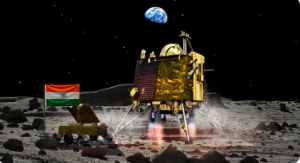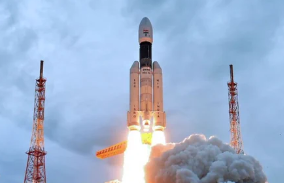The Indian Ministry of Defence on Tuesday penned a Rs 2,971 crore deal with Bharat Dynamics Ltd (BDL) for the procurement of the indigenous Astra Mk-I beyond visual range (BVR) air-to-air missiles in a massive boost towards Prime Minister Narendra Modi‘s vision of an ‘Atmanirbhar Bharat’.
Initially developed by the Defence Research Development Organisation (DRDO), the technology for the manufacture of the missiles and associated systems has been transferred to BDL, the defence ministry clarified.
Also read | India’s real GDP growth stands at 8.7% in FY2022
“Till now, the technology to manufacture missiles of this class indigenously was not available. Astra has been indigenously designed and developed by DRDO based on the staff requirements issued by the IAF, catering for beyond visual range (BVR) as well as close combat engagement, and reducing the dependency on foreign sources,” the ministry said in a statement after the signing of the deal.
“This project will act as a catalyst for development of infrastructure and testing facilities at BDL. It will also create opportunities for several MSMEs (micro, small and medium enterprises) in aerospace technology for at least 25 years. The project embodies the spirit of ‘Atmanirbhar Bharat’,” the ministry added.
Also read | Satyendar Jain arrest: All about the money laundering case against the Delhi minister
Notably, the deal marks the first major order for Astra missiles, which were earlier procured in small numbers on an emergency basis during the standoff between Indian and Chinese forces in the Ladakh sector.
Here’s everything you need to know about the deal.
Also read | Why is Rajya Sabha a ‘permanent house’
What are Astra Mk-1 missiles?
The first air-to-air missile developed by India, Astra is capable of engaging both short-range and long-range air targets at various altitudes, with its range extending from 10 kilometres to an impressive 110 kilometres.
Preliminary work on the missile began more than two decades ago in 1998, and after several redesigns over the years, the missile went into production in 2017 to cater to small orders by the Indian Air Force and the Indian Navy.
Also read | Ahead of Gujarat elections, Hardik Patel to join BJP on June 2
What are the terms of the deal?
Under the defence ministry’s Rs 2,971 crore deal with BDL, the firm will not only manufacture the missiles, but will also help integrate the missiles with various combat platforms.
While Astra missiles have already been integrated with India’s fleet of Su-30 fighters, the deal will see the missiles integrated with other aircraft of the Indian Air Force and the Indian Navy, including Dassault Mirage 2000, HAL Tejas, and Mikoyan MiG-29 planes.
Also read | India’s wheat export ban forces Ukraine to find new routes, defying Russia
A push towards self-reliance:
The deal comes at a time when Russia’s invasion of Ukraine and the consequent Western sanctions on Moscow have exposed India’s reliance on imported defence equipment.
The Indian government, over the past two years, has steadily phased out imports of 310 types of weapons and defence equipment, including light weight tanks, naval utility helicopters, artillery guns, missiles, loitering munitions, and missile destroyers, among others, and the new deal with BDL is expected to strengthen India’s push for self-reliance in the defence sector.
Commenting on the deal, Air Marshal Anil Chopra (retd), the director general of the Centre for Air Power Studies, told Hindustan Times, “We have been dependent on Russian and Israeli missile systems for long. The local production of the Astra missile fills a critical gap in indigenous capabilities.”






